
Banish Eye Bags for Good

Alcohol's Impact on Eye Health
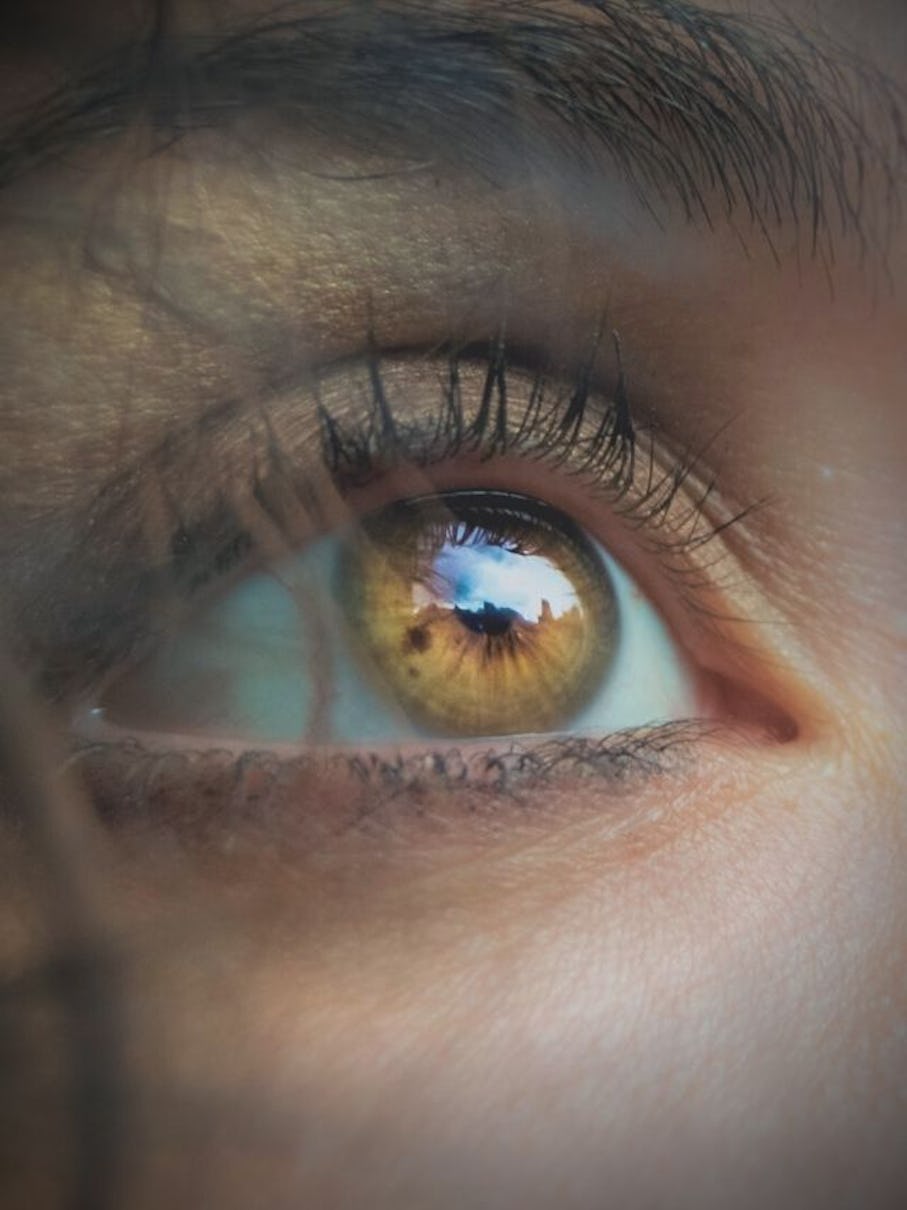
Contact Lenses - making them more comfortable
Dark circles under the eyes can be frustrating for many people. They can make someone look tired and aged, even if they're well-rested. The exact cause of dark circles is not always clear despite their common occurrence.
This article explores the various factors that form dark circles under the eyes, including genetics, lifestyle habits, skin ageing, and medical conditions. We also look at treatments, including lifestyle changes, home therapies, and medical interventions.
When it comes to understanding the causes of dark circles under the eyes, one cannot overlook the significant role of genetics. Just as we inherit traits like eye colour, height, and hair texture from our parents, the tendency to develop dark circles can also be passed down through generations. This hereditary aspect means that if your parents or grandparents have or had dark circles, you're more likely to have them too.
The genetic predisposition to dark circles is often tied to certain ethnic backgrounds. For instance, individuals of South Asian, Mediterranean, or African descent may be more prone to developing dark circles. This is primarily due to the higher levels of melanin in their skin. Melanin, the pigment responsible for the colour of our skin, hair, and eyes, can accumulate around the eyes, leading to a darker appearance in that area.
Moreover, genetics can also influence the thickness and transparency of the skin under the eyes. Some people naturally have thinner skin in this area, making the blood vessels beneath more visible and making dark circles appear. This trait can be inherited and can become more pronounced with age as the skin naturally loses collagen and elasticity.
Genetic factors can also influence the shape and structure of your face. Some people have a deep tear trough - the groove between the lower eyelid and the cheek. This facial characteristic, which can be inherited, can create a shadow that appears as a dark circle under the eye.
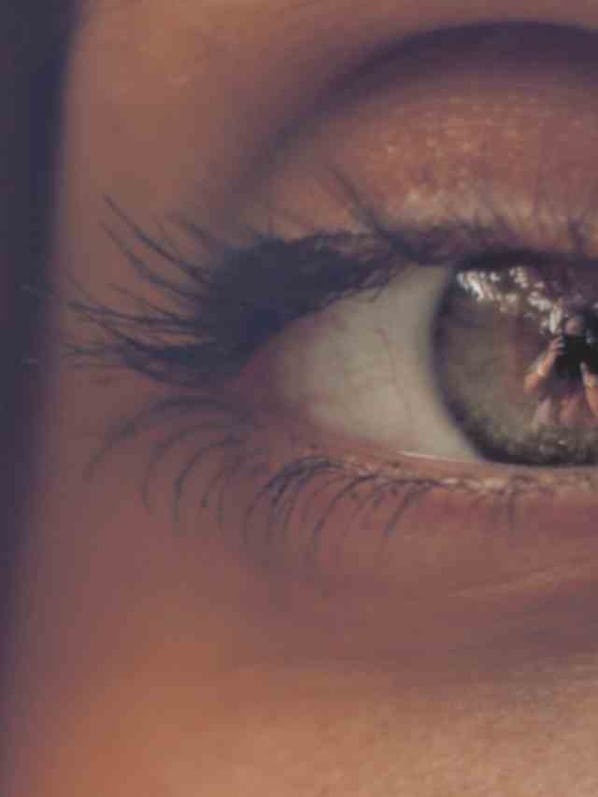
As we journey through life, our bodies undergo many changes, many of which are reflected in our skin. One of the most visible signs of ageing is the appearance of dark circles under the eyes. This common phenomenon is mainly due to the natural ageing process, where our skin gradually transforms, losing its youthful elasticity and firmness.
The skin, our body's largest organ, comprises several layers, each with its unique composition and function. One of the key components of the skin is collagen, a protein that acts as a scaffold, providing structure and strength. Collagen, along with elastin, another protein, is responsible for the skin's youthful firmness and elasticity.
As we age, our bodies naturally produce less collagen. This reduction is a normal part of the ageing process. Still, it has significant implications for our skin's health and appearance. The decrease in collagen production leads to a loss of firmness and elasticity, causing the skin to become thinner and more fragile.
This thinning is particularly noticeable in the delicate area under the eyes, where the skin is thinner than the rest of the face. As the skin becomes thinner, the network of tiny blood vessels, or capillaries, beneath the skin surface becomes more visible. These capillaries, filled with oxygen-rich blood, can cast a bluish or dark hue that is visible through the thin skin, leading to what we commonly refer to as dark circles.
Furthermore, the loss of collagen and thinning of the skin can also lead to a loss of fat and connective tissue in the under-eye area. This loss can create a hollow or sunken appearance, casting shadows that may appear as dark circles under the eyes.
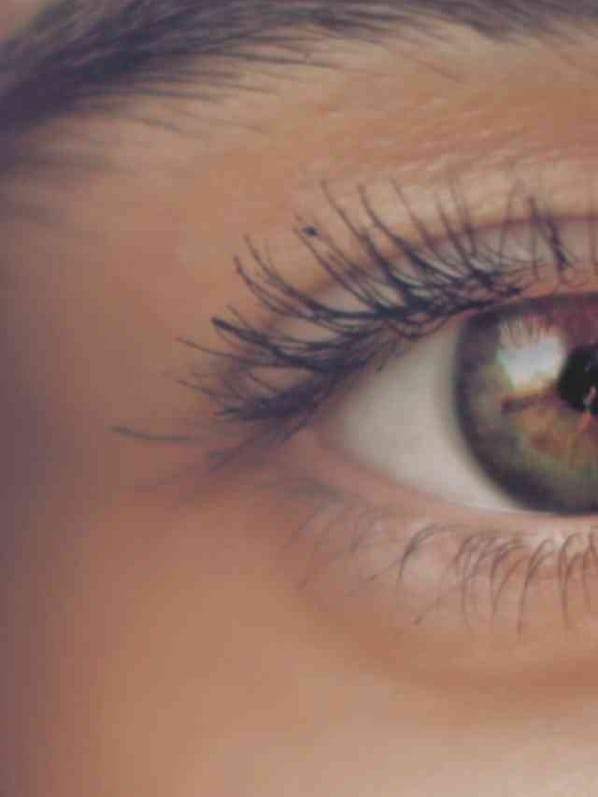
Sleep is a vital part of our overall health and wellbeing. During this restful period, our bodies undergo various restorative processes, including skin regeneration and repair. However, when we don't get enough sleep, these processes are disrupted, and one of the most visible signs of this disruption can be seen in the form of dark circles under the eyes.
Insufficient sleep can lead to a host of changes in our skin. One of the most noticeable is the skin becoming paler. This pallor is due to reduced blood circulation, a common side effect of sleep deprivation. When well-rested, our blood circulation is at its peak, giving our skin a healthy, rosy glow. However, our blood circulation decreases when sleep-deprived, leading to a pale, almost translucent skin appearance.
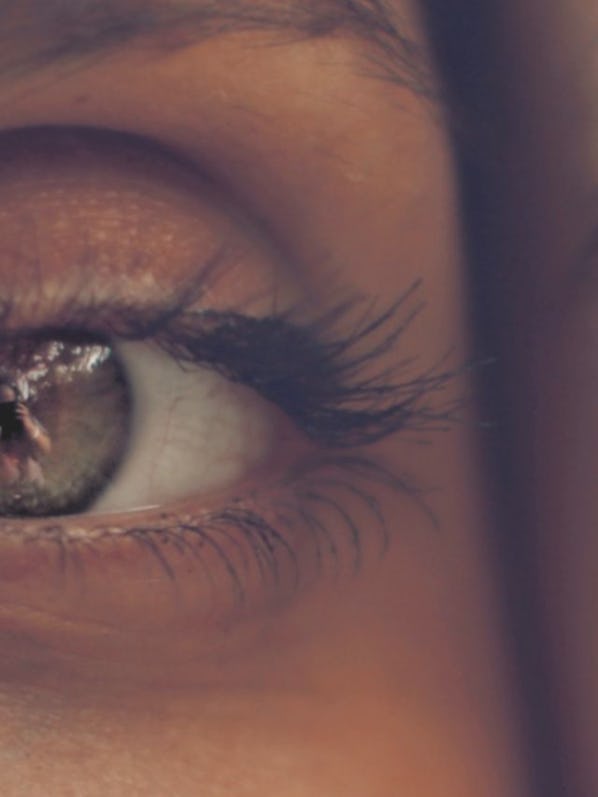
The skin around our eyes is particularly thin and delicate, making any changes more noticeable. When our skin becomes paler due to lack of sleep, the dark blood vessels beneath the skin's surface become more visible. These blood vessels can give the skin below the eyes a darker appearance, leading to what we commonly refer to as dark circles.
Moreover, lack of sleep can also lead to fluid buildup under the eyes. This can result in puffiness or swelling, casting shadows and making dark circles appear more pronounced.
In addition, sleep deprivation can cause our bodies to produce more of the stress hormone cortisol. Elevated cortisol levels can break down collagen, the protein that keeps our skin smooth and elastic. This breakdown can lead to thinning of the skin, making blood vessels more visible and dark circles more apparent.

Hydration is a fundamental aspect of maintaining overall health, and its importance also extends to our skin's health. When the body is not receiving the proper amount of water, various signs can manifest, including dark circles under the eyes.
Dehydration can cause the skin to lose its plumpness and elasticity, leading to a dull and lifeless appearance. This effect is particularly noticeable in the delicate area beneath the eyes. The skin here is thinner and more sensitive than the rest of the face, making it more vulnerable to the effects of dehydration. As a result, the skin can appear dull, and the eyes can look sunken, forming dark circles.
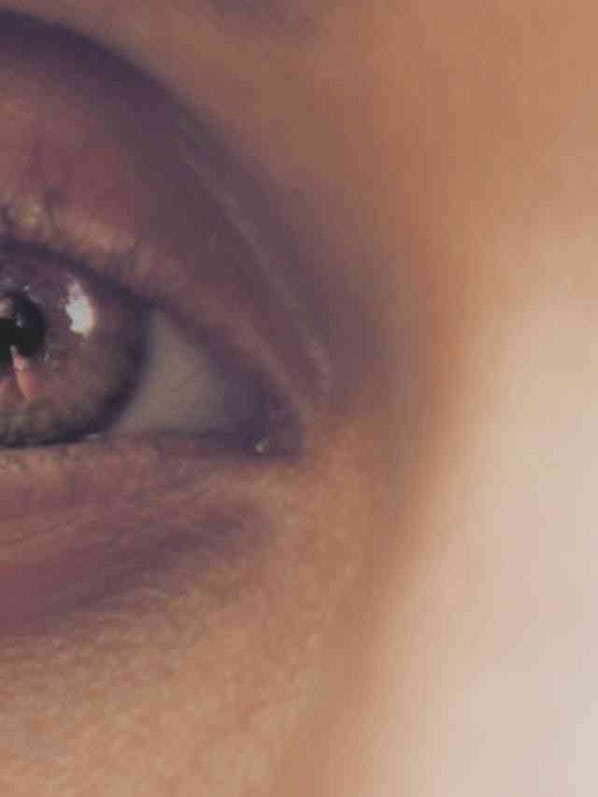
Moreover, dehydration can cause blood vessels under the skin to become more prominent. When the body is dehydrated, it conserves water for vital functions, which can lead to blood vessel constriction. This constriction, coupled with the thin skin under the eyes, can make these blood vessels more visible, contributing to the appearance of dark circles.
Additionally, dehydration can exacerbate puffiness under the eyes. When the body is dehydrated, it tends to retain water as a protective mechanism, which can lead to swelling or puffiness, further accentuating the appearance of dark circles.
It's also worth noting that dehydration can stem from various sources, including inadequate water intake, excessive consumption of diuretic substances like coffee and alcohol, and exposure to dry, hot climates. Lifestyle factors like these can contribute to chronic dehydration, leading to persistent dark circles under the eyes.
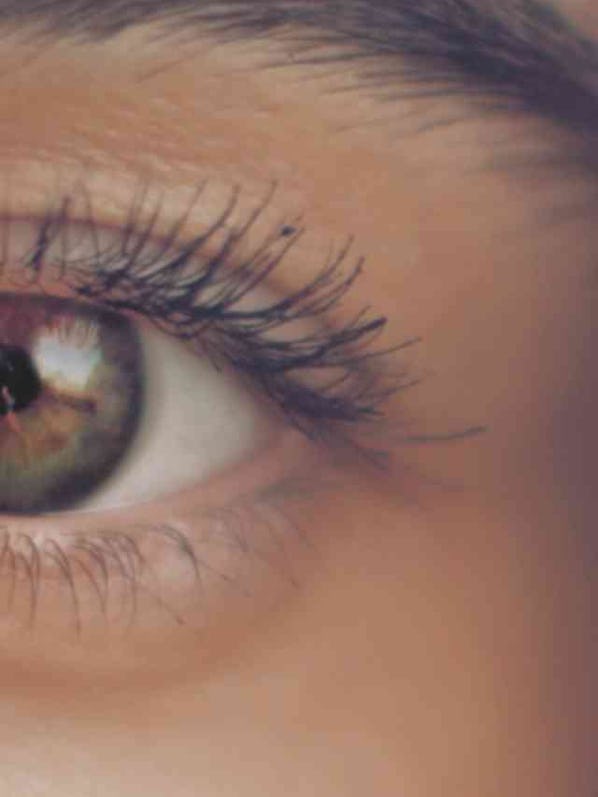
A well-balanced, nutrient-rich diet is not just vital for our overall health and wellbeing. Still, it also plays a significant role in maintaining the health and vitality of our skin. When we neglect to provide our bodies with the essential nutrients they require, it can manifest in various ways, including dark circles under the eyes.
The skin under our eyes is incredibly delicate and thin, making it particularly susceptible to changes in our body and environment. When our diet lacks the necessary nutrients, it can lead to a dull complexion, dehydration, and a tired appearance, all of which can contribute to dark circles.
One of the primary culprits in a poor diet leading to dark circles is a lack of hydration. Our bodies can become dehydrated when we don't consume enough water or hydrating foods. This dehydration can cause the skin to appear dull and the eyes to look sunken, enhancing the appearance of dark circles.
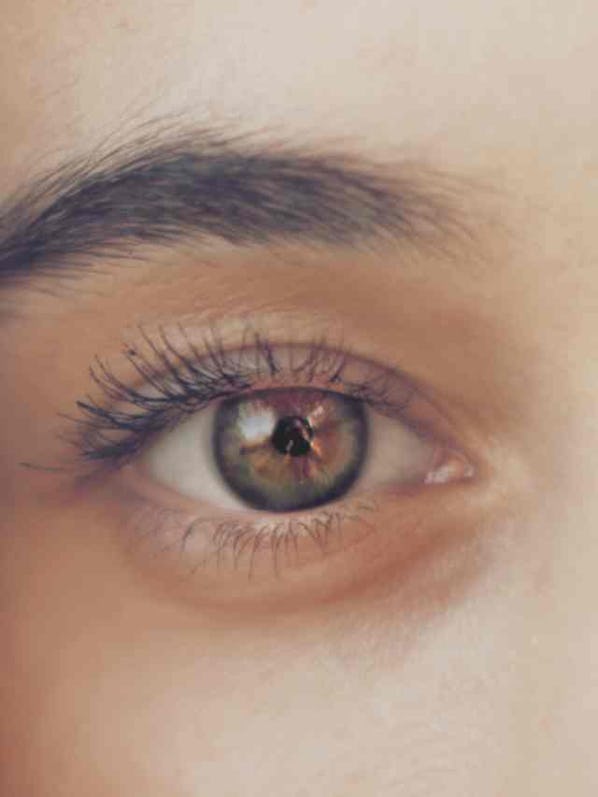
Furthermore, a diet lacking essential vitamins and minerals, particularly iron, can lead to dark circles. Iron deficiency, or anaemia, can result in a pale complexion and potentially cause the blood vessels beneath the skin to appear more prominently, leading to dark circles.
Vitamins A, C, and E are also crucial for skin health. Vitamin A promotes healthy skin cell production, Vitamin C aids collagen production to maintain skin elasticity, and Vitamin E is an antioxidant to fight off damaging free radicals. A deficiency in these vitamins can lead to skin issues, including developing dark circles.
In addition, a diet high in salt or processed foods can lead to fluid retention, causing puffiness and swelling around the eyes, which can cast shadows and create the appearance of dark circles.
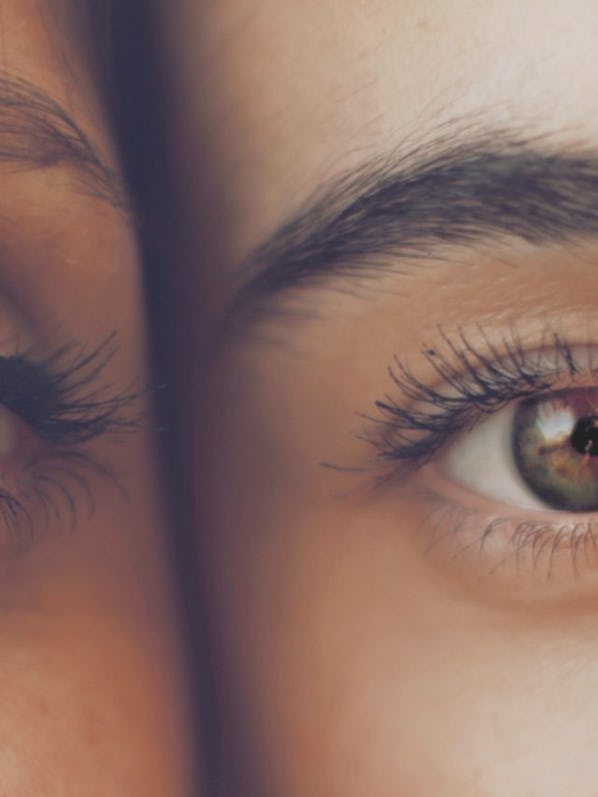
Sunlight, while essential for our overall health and wellbeing, can sometimes adversely affect our skin, particularly the delicate area under our eyes. One such effect is the formation of dark circles, a common concern for many individuals.
The process begins when we expose our skin to excessive sunlight. The sun's ultraviolet (UV) rays are powerful and can penetrate the skin's layers. In response, our bodies initiate a protective mechanism - melanin production. Melanin is a natural pigment that gives our skin, hair, and eyes their colour. It acts as a shield, absorbing UV radiation and dissipating it as heat, protecting our skin cells from UV damage.
However, when the skin is overexposed to the sun, this protective mechanism can go into overdrive, leading to an overproduction of melanin. This overproduction can result in hyperpigmentation, a condition where patches of skin become darker than the surrounding skin.

The skin around our eyes is particularly susceptible to this phenomenon. It is significantly thinner and more delicate than the skin on the rest of our face, making it more vulnerable to sun damage. When melanin production increases in this area due to excessive sun exposure, it can result in dark circles under the eyes.
Moreover, prolonged sun exposure can lead to collagen degradation, the protein responsible for maintaining skin elasticity. As collagen breaks down, the skin loses its firmness and begins to thin, making the blood vessels beneath more visible. This, combined with hyperpigmentation, can accentuate the appearance of dark circles.
It's also worth noting that sun damage is cumulative. This means that the effects of sun overexposure build up over time, contributing to the ageing process and potentially exacerbating the appearance of dark circles.

Allergies can also cause unsightly dark circles under the eyes. When your body encounters something it deems harmful (pollen, dust mites, pet hairs, or a particular food), it launches a defensive response. This response involves releasing histamines, which serve as your body's frontline soldiers against perceived threats.
Histamines are incredibly effective at their job but can lead to uncomfortable symptoms. These include the classic signs of an allergic reaction: itchiness, redness, and swelling. When these symptoms manifest around the sensitive eye area, they can exacerbate or even lead to the formation of dark circles.
One of the key ways histamines contribute to dark circles is by causing blood vessels to dilate. This dilation is part of the body's attempt to rush more blood to the affected areas to help combat the allergen. However, the skin under the eyes is particularly thin and translucent, so these dilated blood vessels can show through as a dark, shadowy colouration—hence, the appearance of dark circles.

Furthermore, the itchiness associated with allergies can lead to additional problems. If you've ever had an allergic reaction, you know how difficult it can be to resist the urge to rub your itchy eyes. Unfortunately, this rubbing can cause bruising and damage to the delicate capillaries under the eyes, which can darken the area even more.
Eye dryness is another common symptom of allergies that can contribute to dark circles. Dry eyes can look sunken and shadowed, making dark circles appear more pronounced. Moreover, dryness can cause the skin to become irritated and inflamed, which can lead to discolouration.

When we're under stress, our bodies release a hormone called cortisol. This hormone is part of our fight-or-flight response, designed to help us deal with immediate threats. However, when stress becomes chronic, the continuous release of cortisol can lead to various health issues, including sleep disturbances.
Furthermore, stress and fatigue can lead to changes in our dietary habits. We may reach for sugary or salty foods for quick energy or comfort, which can lead to water retention and puffiness around the eyes, exacerbating the appearance of dark circles.
Chronic stress can also lead to a decrease in our body's production of hyaluronic acid and collagen. These are vital components of our skin that help to maintain its elasticity and plumpness. A reduction in these can lead to thinning of the skin, making the blood vessels under the eyes more visible and causing dark circles.

An underactive thyroid, known as hypothyroidism, can lead to many symptoms, including fatigue, weight gain, and dark circles under the eyes. The condition can slow metabolism, leading to fluid retention and puffy, swollen tissues around the eyes. This puffiness can create a shadow that appears as dark circles under the eyes.
This skin condition can cause itching, redness, and inflammation around the eyes, leading to dark circles. The skin around the eyes is particularly sensitive, and persistent rubbing or scratching due to itchiness can result in skin discolouration and the appearance of dark circles.
Allergies can cause dark circles under the eyes, often called "allergic shiners." Allergic reactions can lead to inflammation and swelling of the blood vessels beneath the skin, particularly in the delicate area under the eyes. This swelling can result in a dark, shadowy appearance.
Iron deficiency anaemia can cause dark circles under the eyes. When your body doesn't have enough iron, it can't produce sufficient haemoglobin, the part of the blood cell that carries oxygen. This can result in less oxygen reaching your tissues and organs, including the skin, which can cause it to look pale or have dark circles beneath the eyes.
Advanced liver disease can cause dark circles under the eyes due to changes in skin colour and mucous membranes. This is due to jaundice when the liver can't effectively process bilirubin, a by-product of red blood cell breakdown. This can lead to a yellowing of the skin and dark circles under the eyes.
This is a common condition where the skin around the eyes has more melanin than in other areas of the face. The excess melanin, the pigment that gives skin its colour, causes the skin around the eyes to appear darker. This condition can be genetic or caused by sun exposure, ageing, or hormonal changes.
Sleep Apnea is a serious sleep disorder where breathing repeatedly stops and starts. One of the symptoms of sleep apnea is puffiness or dark circles under the eyes. This is because the body struggles to breathe, causing blood to pool in the vessels under the eyes, creating a dark appearance.
Chronic sinusitis can cause inflammation and swelling in the sinus cavities, leading to increased blood flow to the area. This increased blood flow can cause darker skin beneath the eyes. In addition, the pressure and discomfort associated with sinusitis can lead to a tired appearance and dark circles under the eyes.
Kidney problems can sometimes lead to dark circles under the eyes. The kidneys are crucial in removing waste and excess fluid from the body. When they're not functioning properly, these substances can build up, leading to puffiness and dark circles under the eyes.
Smoking is notorious for its detrimental effects on the skin. The nicotine in cigarettes causes blood vessels to constrict, reducing blood flow to the skin's surface. This lack of oxygen and vital nutrients can cause the skin to become dry and dull.
Moreover, the harmful chemicals in tobacco smoke break down collagen and elastin, the essential proteins that provide our skin with structure and elasticity. The result is thinner skin, especially around the eyes, where the skin is already delicate. This thinning makes the underlying blood vessels more visible, leading to the appearance of dark circles.
Additionally, the repetitive facial expressions made while smoking, such as squinting to keep out smoke, can contribute to wrinkles and fine lines around the eyes, further accentuating the appearance of dark circles.

Alcohol consumption, on the other hand, has its unique set of problems. Alcohol is a diuretic, meaning it causes the body to lose fluids. This dehydration can lead to dry and lacklustre skin, making dark circles more pronounced. Furthermore, alcohol can lead to poor sleep quality. Lack of restorative sleep causes blood vessels to dilate and the eyes to appear puffy and tired, often accompanied by dark shadows beneath.
Excessive alcohol consumption also affects the liver's ability to properly detoxify the body, leading to a buildup of toxins that can affect the skin's appearance. This can result in a sallow complexion and the accentuation of dark circles under the eyes.

Getting enough restorative sleep is vital for overall health and wellbeing. Lack of sleep can lead to paler skin, making dark circles more apparent. Aim for 7-9 hours of quality sleep per night. Establishing a regular sleep routine, avoiding screens before bedtime, and creating a calming bedtime environment can help improve sleep quality. Adequate sleep allows the skin to heal and rejuvenate, reducing the appearance of dark circles.
Drinking enough water helps prevent dehydration, which can make dark circles more noticeable. Aim for at least 8 glasses of water daily, more if you're active or live in a hot climate. Hydration helps the skin look plump and healthy, reducing the appearance of dark circles.
Applying a cold compress can reduce puffiness and dark circles. You can use a chilled spoon, cold tea bags, or a bag of frozen peas wrapped in a cloth. The cold helps constrict blood vessels, reducing swelling and dark circles. Apply for 10-15 minutes for best results.
Wearing sunscreen and sunglasses protects the delicate skin around the eyes from sun damage, which can exacerbate dark circles. Choose a broad-spectrum sunscreen with an SPF of at least 30, and wear sunglasses with UV protection.
Alcohol can dehydrate the body and contribute to dark circles under the eyes.
Both alcohol and smoking can age the skin and lead to dark circles. Reducing or eliminating these habits can improve skin health and reduce the appearance of dark circles.
Eating a balanced diet rich in vitamins and minerals, particularly Vitamin K and Vitamin C, can improve skin health. Foods like citrus fruits, leafy greens, and berries support collagen production and reduce inflammation, helping diminish dark circles.
Using gentle, hydrating skincare products and being careful not to rub or pull the delicate skin around the eyes can prevent dark circles. Look for products with ingredients like hyaluronic acid, peptides, and antioxidants.
Eye creams that contain ingredients such as caffeine, retinol, and vitamin K can help improve the appearance of dark circles.
Sleeping with your head slightly elevated can prevent fluid from accumulating around the eyes, reducing puffiness and dark circles. Use an extra pillow or a specially designed wedge pillow.
Excessive salt can lead to fluid retention, causing puffiness and dark circles. Cutting back on salty foods and being mindful of the sodium content in packaged foods can make a difference.
Chronic stress can lead to poor sleep and other health issues contributing to dark circles. Incorporating stress-reducing practices like meditation, deep breathing, or hobbies that you enjoy can improve overall wellbeing and reduce the appearance of dark circles.
Diagnosing dark circles under the eyes typically begins with a physical examination and a medical history review. The doctor may also ask about any current medications and lifestyle changes.
In some cases, a dermatologist may perform a skin biopsy to determine if there is an underlying medical condition causing the dark circles.
Citrus fruits are rich in Vitamin C. This potent antioxidant helps in the production of collagen. This protein maintains skin elasticity and can help to reduce the appearance of dark circles. Examples of citrus fruits include oranges, lemons, grapefruits, limes, and tangerines.
Leafy greens like spinach, kale, and collard greens are packed with Vitamin K, which helps with blood clotting and can potentially improve blood circulation, reducing the appearance of dark circles. They are also rich in iron, a deficiency of which can lead to dark circles.
Fatty fish such as salmon, mackerel, and sardines are rich in omega-3 fatty acids, which are known to reduce inflammation and may help to decrease puffiness and dark circles. Omega-3s also contribute to skin health by maintaining the skin's natural oil barrier, which helps to keep skin hydrated and plump, reducing the appearance of dark circles.
Nuts and seeds like almonds, sunflower seeds, and flaxseeds are rich in Vitamin E. This antioxidant can help protect the skin from oxidative damage that can lead to dark circles. They also contain healthy fats that contribute to skin health.
Berries such as strawberries, blueberries, and raspberries are packed with antioxidants, which can help protect the skin from damage and reduce the appearance of dark circles. They are also a good source of Vitamin C.
Hydrating foods like cucumbers, watermelon, and tomatoes can help hydrate the skin and reduce puffiness. These foods are high in water content and can help maintain skin hydration, reducing the appearance of dark circles.
Whole grains like brown rice, oats, and whole wheat bread are rich in B vitamins, which can improve skin health, reduce inflammation, and potentially decrease dark circles. They also help maintain steady blood sugar levels, preventing the highs and lows that can lead to fluid retention and puffiness.
Eggs are a good source of biotin, a B vitamin crucial for maintaining healthy skin. Biotin deficiency can lead to dermatitis, which can cause dark circles under the eyes.
Green tea is rich in antioxidants and anti-inflammatory compounds that can protect and rejuvenate the skin. Drinking green tea can help reduce inflammation and puffiness around the eyes, reducing the appearance of dark circles.
Injections, such as hyaluronic acid fillers or Botox, can help improve the appearance of dark circles by filling in the hollow area under the eyes.
Chemical peels can help improve the appearance of dark circles by removing the top layer of skin, revealing fresher, brighter skin underneath.
Laser therapy can treat dark circles by stimulating collagen production and improving skin health.
Microdermabrasion can help improve the appearance of dark circles by removing dead skin cells and promoting the growth of new skin cells.
It is important to note that only qualified medical professionals, such as dermatologists or plastic surgeons, should perform treatments for dark circles under eyes.
Dark circles under the eyes can be frustrating for many people. Still, there are several treatments available to help reduce their appearance.
Speak with a medical professional to decide what's best for you. From lifestyle changes and home therapies to medical treatments, there are options to suit your individual needs and preferences.
